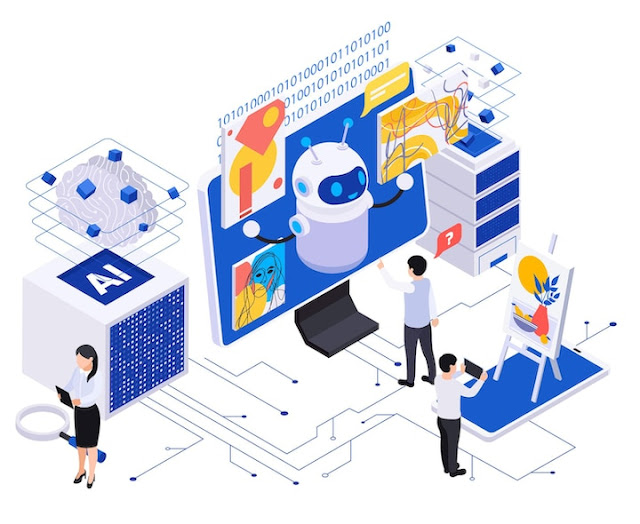What is Machine Learning
In the vast landscape of technology, few terms have garnered as much attention and promise as "machine learning" (ML). It's a phrase that encapsulates not just a single technology but a paradigm shift in how computers learn and make decisions, mimicking human cognition to a remarkable degree. In this article, we'll delve into the intricacies of machine learning, its applications, challenges, and the profound impact it's having on various industries.
Understanding machine learning
At its core, machine learning is a subset of artificial intelligence (AI) that focuses on developing algorithms and statistical models that enable computers to perform tasks without explicit programming. Unlike traditional software programs that rely on predefined rules, machine learning systems learn from data, iteratively improving their performance over time. This ability to learn from experience is what sets machine learning apart and makes it so powerful.
Types of machine learning
Machine learning algorithms can be broadly classified into three categories:
- Supervised Learning: In this type, the algorithm is trained on labeled data, where each input is paired with the correct output. The goal is for the algorithm to learn the mapping between inputs and outputs so that it can predict the correct output for new, unseen inputs.
- Unsupervised Learning: Here, the algorithm is given unlabeled data and tasked with finding patterns or structures within the data. Clustering algorithms, which group similar data points together, are a common example of unsupervised learning.
- Reinforcement Learning: This type of learning is based on the concept of an agent interacting with an environment and learning to take actions that maximize some notion of cumulative reward. It's particularly effective in domains like gaming, robotics, and optimization problems.
Applications of Machine Learning
The applications of machine learning are vast and diverse, impacting almost every industry and aspect of our lives.
- Healthcare: ML algorithms are used for disease diagnosis, drug discovery, personalized treatment plans, and analyzing medical images such as X-rays and MRIs.
- Finance: In finance, ML is used for fraud detection, algorithmic trading, credit scoring, risk assessment, and customer segmentation.
- Marketing: ML powers recommendation systems, targeted advertising, customer churn prediction, sentiment analysis, and market trend analysis.
- Manufacturing: ML is used for predictive maintenance, quality control, supply chain optimization, and autonomous robots in manufacturing processes.
- Transportation: Autonomous vehicles heavily rely on ML algorithms for perception, decision-making, and navigation.
- Natural Language Processing (NLP): ML techniques are used in NLP tasks such as language translation, sentiment analysis, chatbots, and speech recognition.
- Entertainment: ML powers content recommendation engines for streaming platforms, personalized playlists, and content generation.
Challenges and Ethical Considerations
While machine learning offers immense potential, it also comes with challenges and ethical considerations.
- Data Quality: ML models are only as good as the data they are trained on. Poor-quality data can lead to biased or inaccurate models.
- Bias and Fairness: ML models can perpetuate and amplify biases present in the data, leading to unfair outcomes, especially in sensitive domains like hiring or lending.
- Interpretability: Deep learning models, in particular, are often seen as black boxes, making it challenging to understand how they arrive at their decisions, which can be problematic in critical applications like healthcare.
- Privacy: ML models trained on sensitive data raise concerns about privacy and data protection, especially with the increasing use of personal data for training.
- Job Displacement: The automation enabled by ML has raised concerns about job displacement in certain industries, necessitating retraining and upskilling efforts.
The Future of Machine Learning
Despite these challenges, the future of machine learning looks incredibly promising. Advancements in areas like explainable AI (XAI) aim to make ML models more interpretable and transparent. Federated Learning addresses privacy concerns by training models on decentralized data. Additionally, ongoing research in areas like quantum computing and neuromorphic computing could unlock new frontiers in ML capabilities.
As ML continues to evolve, its integration with other emerging technologies like the Internet of Things (IoT), blockchain, and augmented reality (AR) will create new opportunities and use cases. From personalized medicine to smart cities and autonomous systems, machine learning is poised to revolutionize industries and transform the way we live and work.
Conclusion
, machine learning represents a paradigm shift in computing, unlocking unprecedented possibilities and reshaping our world. With continued research, responsible deployment, and ethical considerations, it holds the key to solving complex problems and driving innovation across domains. As we navigate this era of intelligent machines, embracing the potential of machine learning while addressing.
